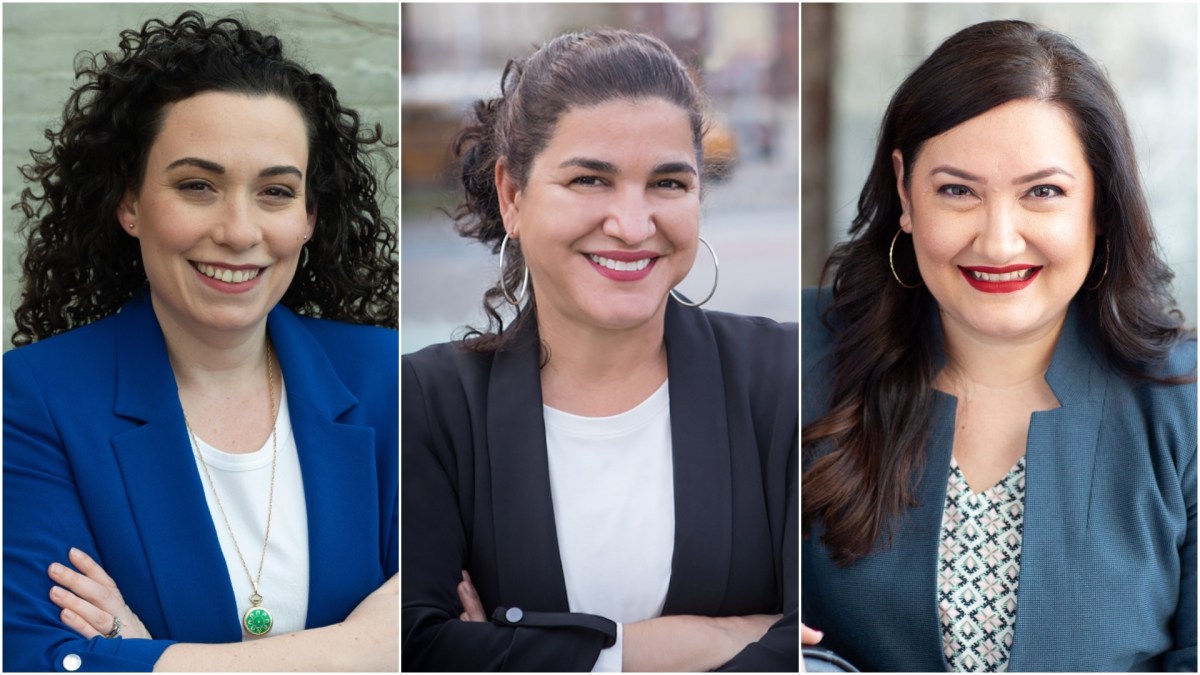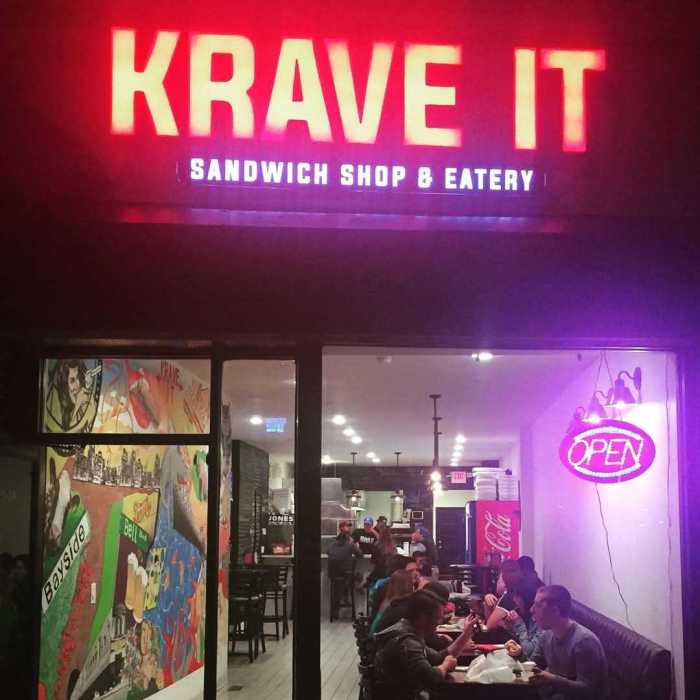Three City Council candidates in western Queens created a senior-focused platform that would help protect the aging population in New York City from being forgotten.
With their combined experience in working with seniors, District 22 candidate Evie Hantzopoulos, District 21 candidate Ingrid Gomez and District 26 candidate Julia Forman joined together to create eight policies they wish to implement if elected to office.
The policy proposals deal with the following issues: Funding, transportation accessibility, rising rents, lack of affordable housing, high taxes, food insecurity, lack of information of services that are available to seniors and lack of information in the preferred language of seniors.
Forman and Hantzopoulos joined together first at the Astoria Mutual Aid Network, which is a group of neighbors supporting their community, that started last March as a result of the COVID-19 pandemic. From their experience volunteering, they saw just how badly seniors were in need of help.
“It was a lot of seniors who needed our help in a variety of ways,” Forman said. “These were things the city could and should have been doing.”
Gomez’s experience as a social worker helped her craft these policies as well.
During the pandemic, Hantzopoulos said she helped book vaccine appointments, provide PPE and give vouchers for Lyft rides to vaccination sites for seniors.
“It’s often hard enough for them in the best of circumstances, but during a global pandemic, they faced so many challenges and I think in many ways were neglected,” Hantzopoulos said. “In western Queens, the senior population is growing. So I think it’s really critical to protect our seniors so they can age with dignity.”
The three candidates compiled an extensive yet comprehensive list of policy solutions:
- Issue: DFTA is 0.5 percent of the budget although the aging population is growing. Funding for organizations that work with aging populations [is] currently at the mercy of discretionary funding.
- Proposal: Make funding permanent and increase social services funding so that they are able to expand services and plan for the future. New York City must also permanently “make good” on [its] promise to pay for the total indirect cost rate of nonprofits, and not just a percentage. We must significantly scale up the availability of services to seniors and open more publicly funded senior centers to accommodate the daily needs of our senior population.
- Issue: Seniors can be stranded in their neighborhoods (transit deserts) due to insufficient Access-a-Ride.
- Proposal: Work with NYC Taxi Commission to provide vouchers for seniors to use when they need to travel within NYC with a timely reimbursement to taxi drivers.
- Issue: Cooling centers are opened on the basis of federal standards that do not reflect the needs and capabilities of NYC and are unevenly dispersed throughout the city.
- Proposal: NYC needs to have its own standards for when cooling centers are open rather than depend on federal regulations, and must be more equitably distributed throughout the city.
- Issue: High property taxes and rising rents are prohibitive to seniors aging in place where they own and rent homes.
- Proposal: Raise the income requirement for the Senior Citizen Rent Increase Exemption (SCRIE) and Senior Citizen Homeowners Exemption (SCHE) so that more seniors qualify for rent freezes (currently $50,000) and property tax assistance (currently $58,399) and engage in an expansive publicity campaign focused on mail and telephone outreach, to ensure seniors have knowledge about and access to this program.
- Issue: Senior housing and supportive housing are in high demand and in short supply.
- Proposal: Fund the development of 100 percent affordable senior and supportive housing rather than request private developers set aside a certain percent of units in luxury developments.
- Issue: Food insecurity for seniors and food provided to seniors are not culturally appropriate.
- Proposal: Start indoor community gardens in senior centers to provide opportunities for seniors to take part in providing themselves and their neighbors with fresh produce. Senior centers should also be given the resources to provide daily meals for clients in person. The city should fund a program to ensure that meal delivery is nutritious, high-quality, culturally appropriate and meets dietary restrictions as needed. There is [an] opportunity to partner with existing food delivery organizations for distribution.
- Issue: Seniors would like to age in place but do not currently have that option due to expense and inaccessibility.
- Proposal: Funding should be available for upgrades to homes (bars in bathroom, air conditioning, etc.) to make existing homes safer and more accessible for seniors. DFTA social workers should be available to navigate existing rental assistance programs from all levels of government, to ensure that seniors on fixed incomes are not pushed out of their homes. We must also ensure that the in-home healthcare workers that care for them can make a living wage and are cared for bypassing Int 0339-2018 to include protection for domestic workers under the human rights law’s definition of an employer, and Int 0800, to expand access to paid leave and to protect all workers from retaliation, and passing a resolution to pressure our state lawmakers to pass the Fair Pay for Homecare Act (S5374).
- Issue: Seniors are not aware of existing benefits available to them. As an example, aid during COVID was unevenly distributed to seniors due to a lack of language accessibility.
- Proposal: Mailers need to be sent and robocalls in multiple languages need to be conducted so that seniors know the resources available to them in the event of any future emergency. We also need to empower the Office of Emergency Management (OEM) to create comprehensive, rapid response plans for widespread emergencies to avoid the need for extensive planning when emergencies occur. There should be a commission between DFTA, the Office of Emergency Management, and existing senior organizations who have been working with seniors in our communities, so that they are prepared for immediate implementation should an emergency occur.
Hantzopoulos said that the City Council fell short in their districts with the older population during COVID-19.
“As [seniors] age, I think people value them less,” Hantzopoulos said. “The population is growing and I think this pandemic really showed how inadequate our ability to serve this population has been.”
Hantzopoulos understands the hardships seniors in her community face from her experience aiding them during the pandemic, but also a caretaker for her mother with Alzheimer’s.
“I think it’s really important that as we are developing policy and our budget, that we have seniors at the table that they’re telling us what they need and what they want that they’re telling us what they need and what they want,” Hantzopoulos said. “Policy isn’t going to be made for them; it will be made with them.”
Forman said although she hopes to bring these initiatives to City Council, she will always continue caring for seniors in her community as a private citizen.




































